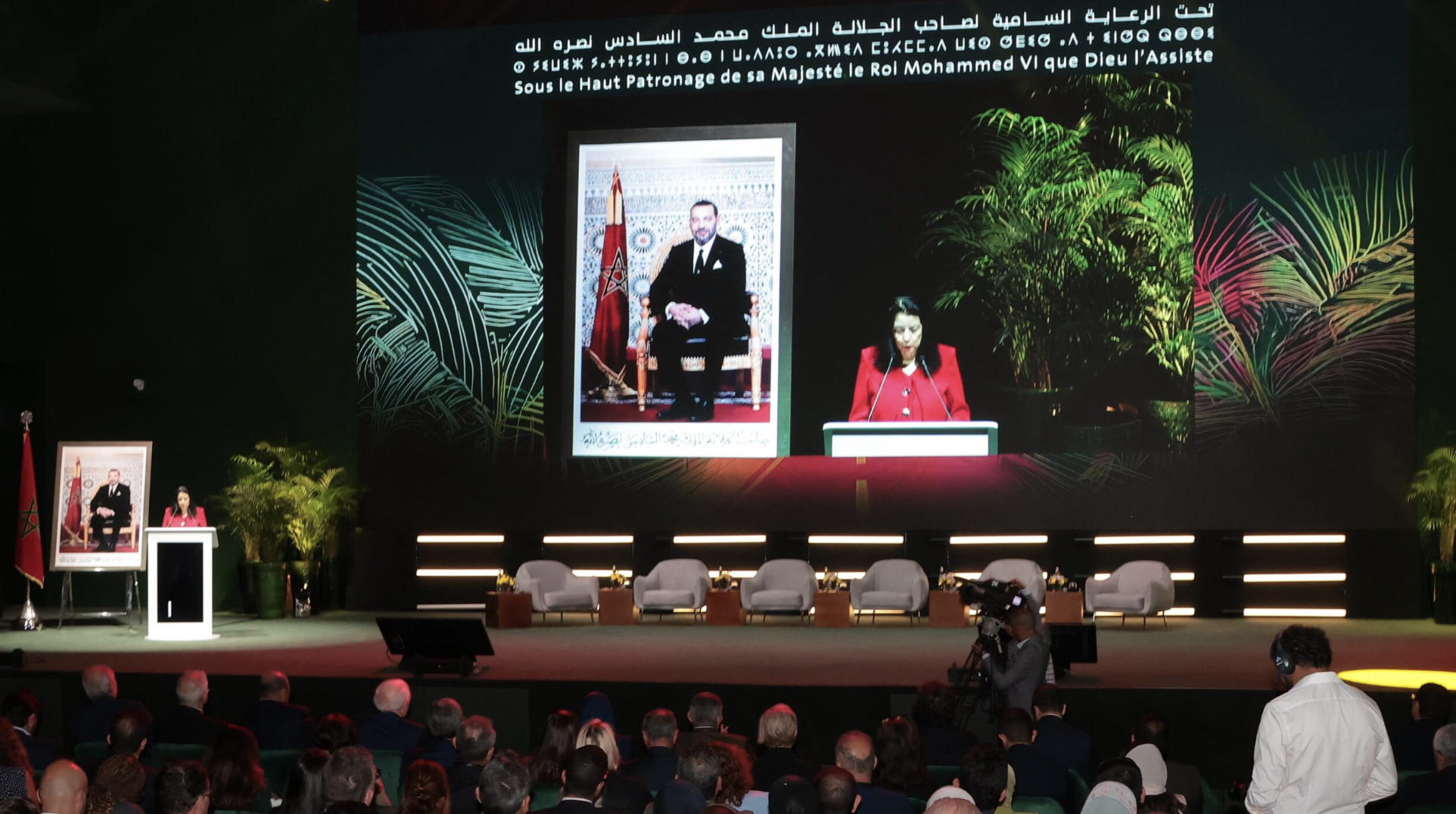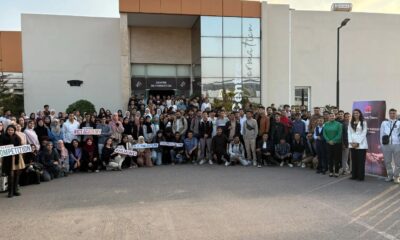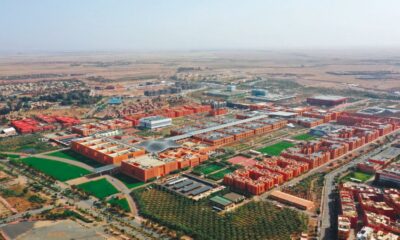Business
Digital Sovereignty: Morocco Steps into the Age of Artificial Intelligence
Through the inaugural National Artificial Intelligence Summit, held in Rabat on July 1st and 2nd, the Kingdom reaffirms its commitment to fostering sovereign, inclusive, and ethical AI.

A National First. Rabat hosted the inaugural National Artificial Intelligence Summit on July 1st and 2nd, a landmark initiative organized by the Ministry of Digital Transition and Administrative Reform.
Over two days, more than 2,000 participants—Moroccan and international experts, public decision-makers, researchers, and entrepreneurs—exchanged perspectives on the technological, economic, and ethical challenges posed by AI.
The choice of venue was deliberate: Mohammed VI Polytechnic University (UM6P) in Rabat, a symbol of innovation and applied research, served as the strategic epicenter for the event. Its AI Movement initiative was notably recognized by UNESCO as a “Category II Center,” the only one in Africa, tasked with positioning Morocco as a regional hub for AI-driven transformation.
The agenda featured conferences, panel discussions, sectoral workshops, and demonstrations of Moroccan AI-powered solutions. The opening remarks set the tone: artificial intelligence is no longer a future gamble but an immediate priority. Morocco aims to play its role in reshaping the global digital landscape by championing sovereign, ethical, and inclusive AI.
In a video address during the opening ceremony, Prime Minister Aziz Akhannouch praised the gathering as a reflection of a “collective will” to place AI at the core of public policies. He called for building an ambitious national strategy to serve sustainable human development.
Amal El Fallah Seghrouchni, Delegate Minister for Digital Transition, echoed this urgency, emphasizing the need for an integrated vision of AI. “It is no longer a technology of tomorrow but a transformative force in our present,” she stated. For her, AI must modernize public services and redefine the relationship between the state and its citizens.
Balancing Opportunities and Ethics
While AI holds immense promise, its risks are equally real. The ministry acknowledges challenges such as algorithmic bias, system opacity, public-sector digital skills gaps, and the abstraction of decision-making—all demanding serious attention.
A regulatory framework is under development, anchored in clear principles: algorithmic transparency, the right to explanation, the possibility of objection, and, crucially, the primacy of human judgment.
Martin Tisné, Director of AI Collaborative, argues that AI cannot exist in a vacuum. “It must address the concrete needs of Moroccan citizens. This requires tailoring solutions to the country’s realities,” he explained.
He outlined three priorities: ensuring quality data in Arabic and French, promoting open and accessible AI through open-source platforms, and fostering responsible AI attuned to its impacts on health, education, and social equity.
In this new global digital order, Morocco seeks to amplify its voice. Hicham El Habti, President of UM6P, stressed that AI regulation cannot remain the monopoly of major powers. “This is not symbolic. It is strategic for Southern nations to shape global norms,” he asserted. To achieve this, three levers are key: scientific rigor, interdisciplinary collaboration, and robust partnerships.
A Four-Pillar Strategy
A central goal of the summit was to lay the groundwork for a national vision centered on digital sovereignty, modernization of public services, and tangible citizen impact. During the opening panel, four strategic pillars emerged: energy, education, economic inclusion, and private-sector engagement.
Leila Benali, Minister of Energy Transition, highlighted the interdependence between AI and energy systems. High-performing AI requires stable, sustainable energy infrastructure, while AI itself can optimize resource management—critical for a nation transitioning to renewables.
In education, Mohamed Saad Berrada, Minister of National Education, acknowledged that AI integration in Moroccan schools remains in its “embryonic” stages. He described it as a necessary foundation for future, sustainable pedagogical practices.
A major initiative launched in March 2025—the National Program for Digital Skills and AI Training—exemplifies this momentum. Spearheaded by the ministry and key partners like UM6P, the program targets children and adolescents through practical workshops on AI, programming, and responsible digital use. Designed for nationwide inclusivity, it aims to democratize 21st-century skills.
Younes Sekkouri, Minister of Economic Inclusion, stressed the dual imperative of democratizing AI access while harnessing it as an engine for jobs and opportunities.
Chakib Alj, President of the CGEM (Moroccan Employers’ Association), urged the private sector to redouble efforts in training future talent. He advocated for revamped education in critical fields like healthcare and higher education, alongside specialized AI academies.
Legal Framework in Development
Addressing AI’s rapid rise demands robust legal and ethical responses. The Minister of Digital Transition announced a draft digital governance law, developed in collaboration with key institutions like the National Commission for Data Protection (CNDP), the Directorate General of Information Systems Security (DGSSI), the General Directorate of National Security (DGSN), and the Digital Development Agency (ADD).
The law’s objectives are clear: rebuilding durable digital trust, essential for citizen-administration relations in the AI era.
It will regulate AI integration in public services through core principles. First, administrative algorithm transparency: agencies must clarify the decision-making logic behind automated systems. Second, guaranteeing the right to understand and object: citizens may challenge AI-driven decisions. Finally, strict ethical standards will prioritize justice, fairness, and non-discrimination over mere technical performance.
Beyond legislation, this framework seeks to establish a digital social contract—redefining relationships between citizens, institutions, and technology, with human rights at the heart of digital transformation.













